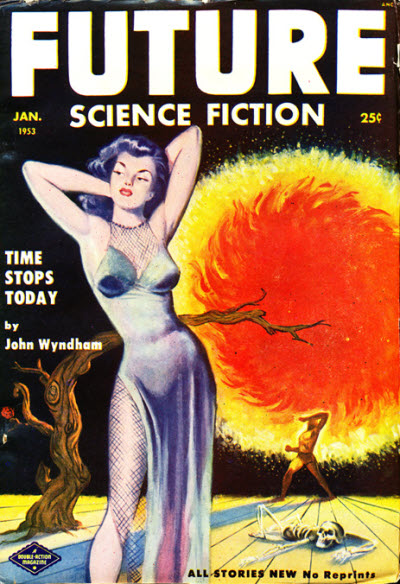Re-engineering Utopian Archaeologies

Utopia has always been a political issue, an unusual destiny for a literary form:
yet just as the literary value of the form is subject to permanent doubt, so also its political
status is structurally ambiguous. The fluctuations of its historical context do nothing to
resolve this variability, which is also not a matter of taste or individual judgment ...
Paradoxically, this exercize in pure Utopian formalism has brought us closer to
present-day political realities and contingencies than seems altogether desirable. Thus in
order to win back some degree of conviction, the content of the Utopian vision must seem
plausible (as Aristotle suggested about the tragic plot) without at all having to be
possible. We here return to the old generic problem that has been with us since the
beginning of this book: as a form, Utopia must be distinct from political reality; it must
offer a kind of mimesis of the political platform or manifesto while retaining, as it were,
its aesthetic distance. It must be marked as Utopian and thereby as partaking in a specific
and very special kind of aesthetic unreality: otherwise it falls into the world and,
particularly if realized, spells the end of Utopias in the way wryly distinct from the usual
prognoses of their current disappearance.
What can then today be the function of so ambiguous an entity as Utopia, if not as
a forecast of political and empirical possibilities?

... the secret message of all Utopias, present, past, and future:
"Are you really in danger?"
"Yes." His big head nodded in cordial agreement.
"You may fail us."
"Me? How?"
"You of your time. You individually may fail to understand us or
to struggle in your own life and time. You of your time may fail to
struggle altogether… We must fight to exist, to remain in
existence, to be the future that happens, That’s why we reached
you."
===>Marge Piercy, Woman on the Edge of Time (NY, 1976), pp. 197-198.

Cultural Fictions II
The Centre for Cultural Studies at Goldsmiths is hosting a conference on the significance of science fiction for disciplines and practices associated with cultural studies, to be held on 15-16th June, 2006. In particular, we will be asking whether sci-fi’s privileged relationship to alterity – e.g. in the forms of the alien, the non-human and above all the future – is what makes it so attractive to politically and philosophically oriented research and other contemporary artistic practices.
In addition to the speakers named below (who more than justify the non-entrance fee on their own, I'm sure you'll agree), Steve 'Kode 9' Goodman, Infinite Thought and me should also be giving papers.
===>K-Punk: Cultural Fictions at Goldsmiths

Paradoxically, the older Marxist traditions, drawing uncritical lessons from Marx
and Engels’ historical analyses of Utopian socialism in The Communist Manifesto
, andalso following Bolshevik usage
, denounced its Utopian competition as lacking anyconception of agency or political strategy, and charactered Utopianism as an idealism
deeply and structurally averse to the political as such. The relationship between Utopia
and the political, as well as questions about the practical-political value of Utopian
thinking and the identification between socialism and Utopia, very much continue to be
unresolved topics today, when Utopia seems to have recovered its vitality as a political
slogan and a politically energizing perspective.

Indeed, a whole new generation of the post-globalization Left – one which
subsumes remnants of the old Left and the New Left, along with those of a radical wing
of social democracy, and of First World cultural minorities and Third World
proletarianized peasants and landless or structurally unemployable masses – has more
and more frequently been willing to adopt this slogan, in a situation in which the
discrediting of communist and socialist parties alike, and the skepticism about traditional
conceptions of revolution, have cleared the discursive field. The consolidation of the
emergent world market – for this is really what is at stake in so-called globalization – can
eventually be expected to allow new forms of political agency to develop. In the
meantime, to adapt Mrs. Thatcher’s famous dictum, there is no alternative to Utopia, and
late capitalism seems to have no natural enemies (the religious fundamentalisms which
resist American or Western imperialisms having by no means endorsed anti-capitalist
positions). Yet it is not only the invincible universality of capitalism which is at issue:
tirelessly undoing all the social gains made since the inception of the socialist and
communist movements, repealing all the welfare measures, the safety net, the right to
unionization, industrial and ecological regulatory laws, offering to privatize pensions and
indeed to dismantle whatever stands in the way of the free market all over the world.
What is crippling is not the presence of an enemy but rather the universal belief, not only
that this tendency is irreversible, but that the historic alternatives to capitalism have been
proven unviable and impossible, and that no other socio-economic system is conceivable,
let alone practically available. The Utopians not only offer to conceive of such alternate
systems; Utopian form is itself a representational meditation on radical difference, radical
otherness, and on the systemic nature of the social totality, to the point where one cannot
imagine any fundamental change in our social existence which has not first thrown off
Utopian visions like so many sparks from a comet.
The fundamental dynamic of any Utopian politics (or of any political Utopianism)
will therefore always lie in the dialectic of Identity and Difference
iv , in the degree towhich such a politics aims at imagining, and sometimes even at realizing, a system
radically different from this one. We may in this follow Olaf Stapledon’s space-and-time
travelers, who gradually become aware that their receptivity to alien and exotic cultures is
governed by anthropomorphic principles:
At first, when our imaginative power was strictly limited by
experience of our own worlds, we could make contact only with
worlds closely akin to our own. Moreover, in this novitiate stage
of our work we invariably came upon these worlds when they were
passing through the same spiritual crisis as that which underlies the
plight of
Homo sapiens today. It appeared that, for us to enter anyworld at all, there had to be a deep- lying likeness or identity in
ourselves and our hosts.
[===>Olaf Stapledon, The Last and First Men/Star Maker (NY, 1968), p. 299.]
Stapledon is not strictly speaking a Utopian, as we will see later on; but no Utopian writer
has been quite so forthright in confronting the great empiricist maxim, nothing in the
mind that was not first in the senses. If true, this principle spells the end, not only of
Utopia as a form, but of Science Fiction in general, affirming as it does that even our
wildest imaginings are all collages of experience, constructs made up of bits and pieces
of the here-and-now: "When Homer formed the idea of Chimera, he only joined into one
animal, parts which belonged to different animals; the head of a lion, the body of a goat,
and the tail of a serpent."
vi On the social level, this means that our imaginations arehostages to our own mode-of-production (and perhaps to whatever remnants of past ones
it has preserved). It suggests that at best Utopia can serve the negative purpose of
making us more aware of our mental and ideological imprisonment (something I have
myself occasionally asserted
); and that therefore the best Utopias are those that fail themost comprehensively ...
Archaeologies of the Future : The Desire Called Utopia and Other Science Fictions




0 Comments:
Post a Comment
<< Home